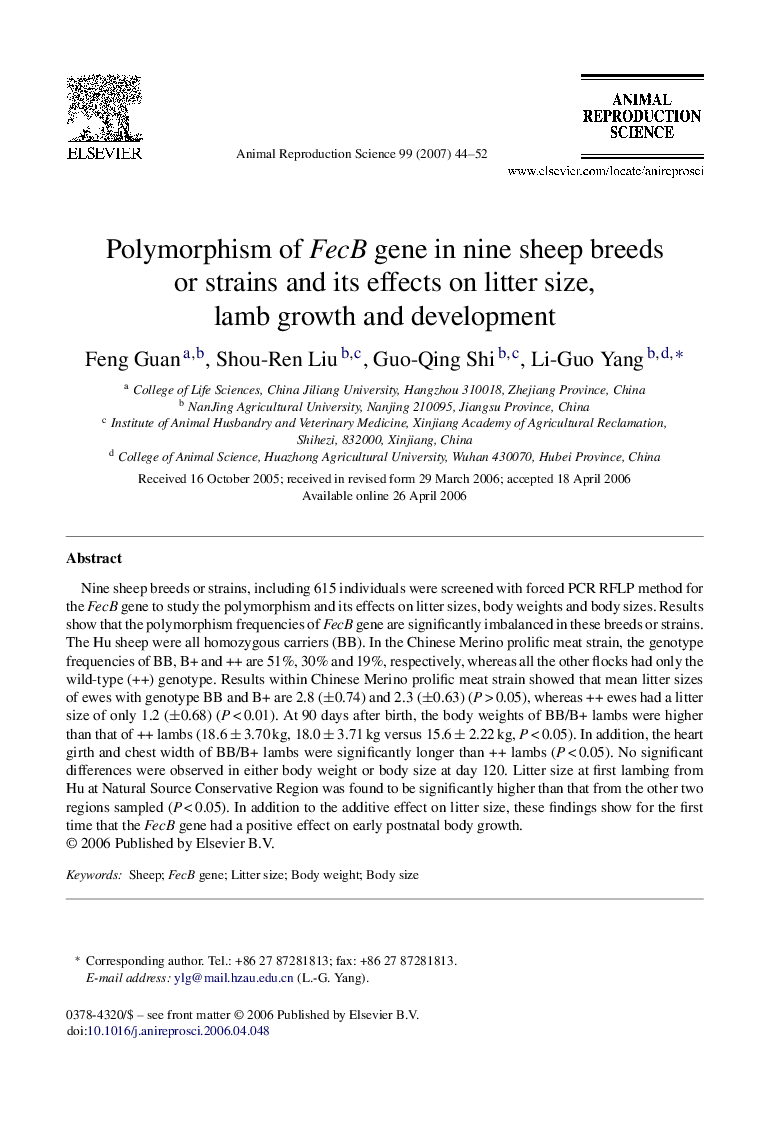| Article ID | Journal | Published Year | Pages | File Type |
|---|---|---|---|---|
| 2074990 | Animal Reproduction Science | 2007 | 9 Pages |
Nine sheep breeds or strains, including 615 individuals were screened with forced PCR RFLP method for the FecB gene to study the polymorphism and its effects on litter sizes, body weights and body sizes. Results show that the polymorphism frequencies of FecB gene are significantly imbalanced in these breeds or strains. The Hu sheep were all homozygous carriers (BB). In the Chinese Merino prolific meat strain, the genotype frequencies of BB, B+ and ++ are 51%, 30% and 19%, respectively, whereas all the other flocks had only the wild-type (++) genotype. Results within Chinese Merino prolific meat strain showed that mean litter sizes of ewes with genotype BB and B+ are 2.8 (±0.74) and 2.3 (±0.63) (P > 0.05), whereas ++ ewes had a litter size of only 1.2 (±0.68) (P < 0.01). At 90 days after birth, the body weights of BB/B+ lambs were higher than that of ++ lambs (18.6 ± 3.70 kg, 18.0 ± 3.71 kg versus 15.6 ± 2.22 kg, P < 0.05). In addition, the heart girth and chest width of BB/B+ lambs were significantly longer than ++ lambs (P < 0.05). No significant differences were observed in either body weight or body size at day 120. Litter size at first lambing from Hu at Natural Source Conservative Region was found to be significantly higher than that from the other two regions sampled (P < 0.05). In addition to the additive effect on litter size, these findings show for the first time that the FecB gene had a positive effect on early postnatal body growth.
